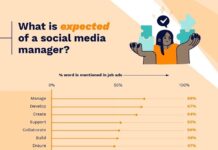We recently wrote about Fanrank, a Facebook app designed to reward fans for influencing their peers. Last week saw the formal launch of FanFueled, another company designed to reward fans for sharing information with their peer group, but with a transaction-based twist.
FanFueled is a new event ticketing platform that is designed to leverage the power of peer-to-peer networks and “turn fans into promoters.” Even if you’re not selling tickets, you can leverage the companies engagement engine to reward fans for specific content-sharing actions. But what’s really novel is that the ticketing platform tracks the transactional impact of fan sharing–and lets fans earn rebates on their service fee if their promotional activities yield additional ticket sales.
This, along with the additional rewards that fans can win by earning points for various engagement activities, leads to very high levels of sharing activity for users of the FanFueled platform. The company has worked with 200 events during its beta period. According to Founder and CEO Anderson Bell, the sharing rate for FanFueled events is 20% — 1 in 5 ticket buyers share information with their peers — which is double the sharing rate for a ticketing platform such as Eventbrite. (Check out the Eventbrite case study from Realtime NY 11 for more on the value of a share.)
Buy a Ticket. Get Your Friend to Buy a Ticket. Earn a Rebate
One of Bell’s motivations in launching the company, which recently raised $1 million from angel investors, is the exorbitant service fees charged by traditional ticketing companies. When he was forced to pay $50 in service fees for a couple of Pearl Jam tickets, he realized that the system was broken. “That’s a huge additional cost to the fan, and it that does not add value to the band, the concert organizers or the fans.”
FanFueled allocates 50% of the comparably lower service fees it charges to a pool that is used to rebate fans. If I buy a ticket, the system then tracks my sharing activity on Twitter and Facebook. If another fan buys a ticket as a result of that activity, I earn a rebate on my service fee. The platform tracks the ripples of sharing–even if the next ticket buyer comes from a re-tweet of a tweet I sent, I still get credit for that transaction. The more buying I influence, the greater my rebate. What’s more, there’s an incentive for fans to buy tickets early, since that gives me a longer window to earn rebates.
Harnessing the Passion of Fans to Drive Sharing
In addition to the social event ticketing platform, the company also lets events organizers create rewards around specific fan behaviors, such as sharing sponsor messages to earn points and prizes. Events organizers can leverage this features, called FanFueled Engage, even if they’re not using the ticketing platform. Chicago’s Northcoast Music Festival recently used this platform to drive 5,000 shares of sponsored content, adding up to 2.5 million impressions over 30 days. Each piece of shared content yielded an average of 19 engagements (such as likes, shares or comments).
With all of this tracking comes data, and the company lets event organizers see which fans are the most valuable, based on who’s doing the most sharing and who’s having the most influence. And the company has plans for additional features that track and reward fan sharing behavior, including ways to engage fans on an ongoing basis, even when there is no specific event scheduled.
“Everyone is their own media network now,” says Bell. “Word of mouth has always been critical to the success of an event. Now we have the ability to track and reward peer-to-peer influence.”
What do you think? Would a platform like this make you more likely to spread the word about an event?
And do you think that sponsors and promoters can get more benefit from an approach that rewards actual influence, as opposed to using a service like Klout that attempts to predict influence in the abstract? Or is there a place for both?


